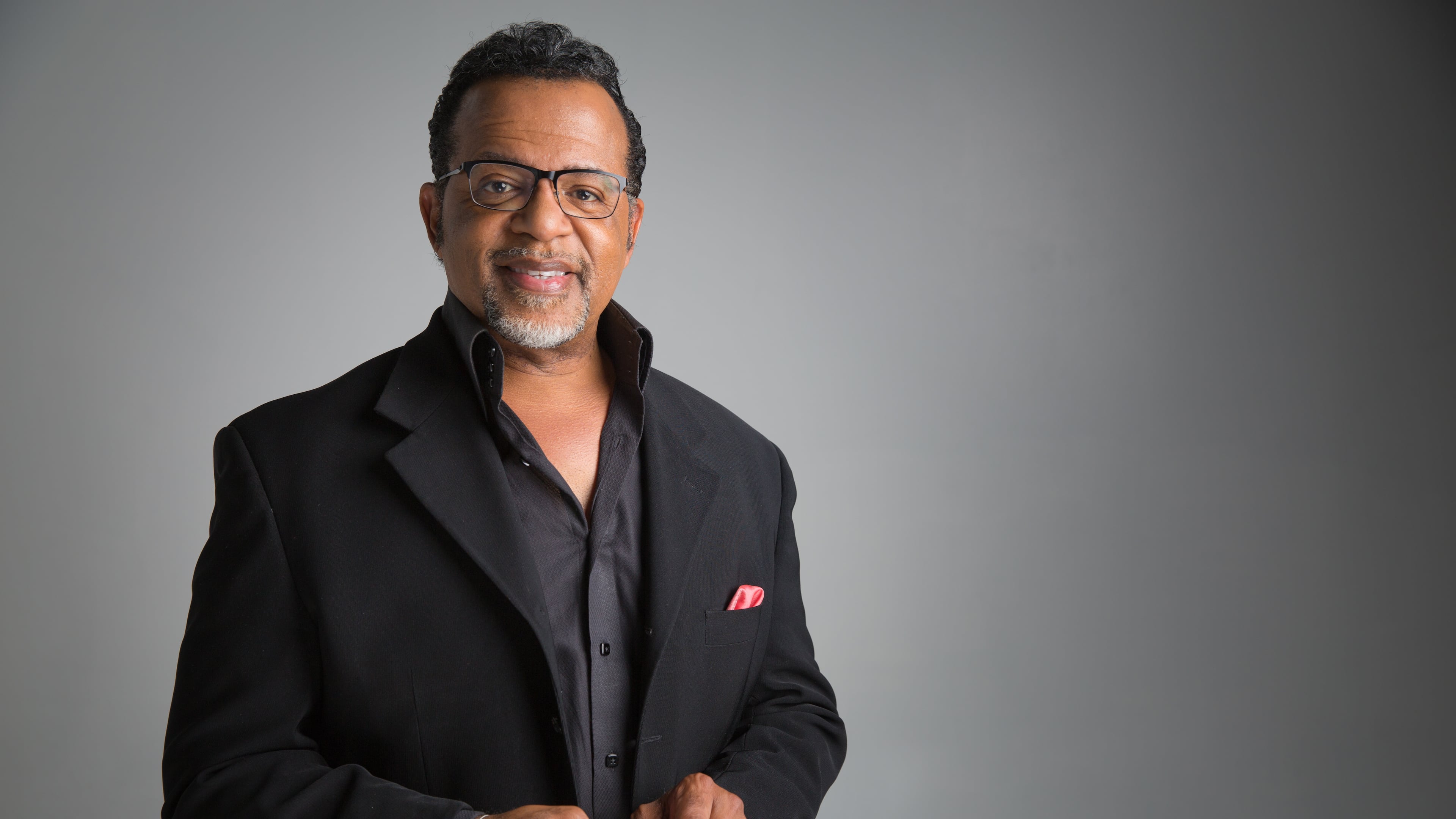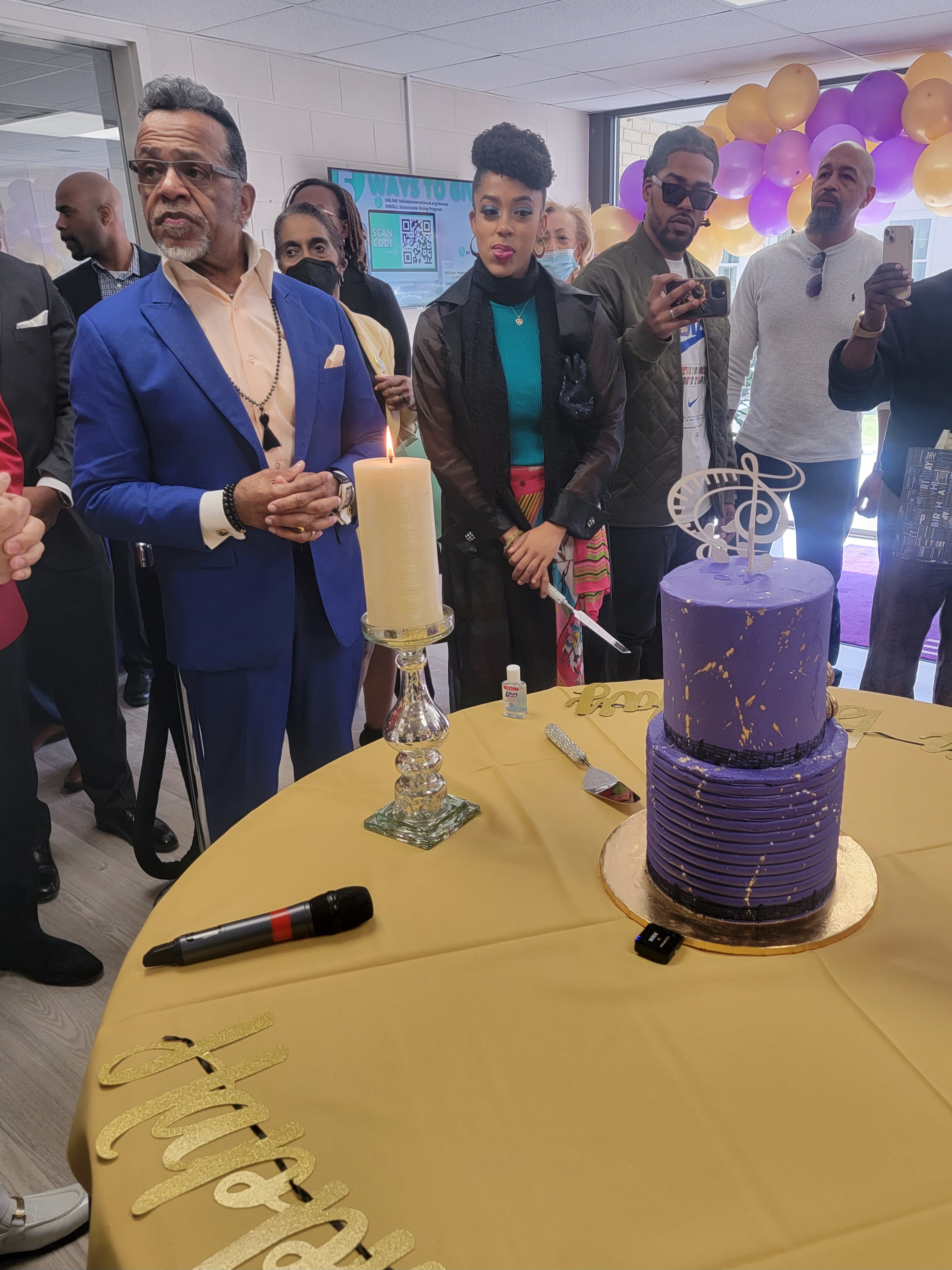Bishop Carlton Pearson considered Atlanta a second home, say friends

Bishop Carlton Pearson, the prominent pastor who broke with standard Pentacostal thought on the concept of hell and inclusion of the LGBTQ community, was a friend and mentor to pastors throughout metro Atlanta.
Will Bogle, his agent of more than 10 years, said the Tulsa-based Pearson loved visiting Atlanta because of its significant place in civil rights and social justice history, strong religious footprint and as the home of several HBCUs.
Additionally, his later message of LGBTQ inclusion was well received in a city with a strong LGBTQ community,
“People were very, very happy he embraced the same-gender-loving communities,” Bogle said.
The Rev. D.E. Paulk, a member of a prominent preaching family that at one time led one of the nation’s largest megachurches, grew up listening to the early preaching of Bishop Carlton Pearson.
Paulk was 6 years old when he first heard the young, energetic Pentecostal preacher from Tulsa speak during a service at a Decatur church, founded by Bishop Earl Paulk and his brother, Pastor Don Paulk.
Pearson, who became one of the leading religious voices in the nation, died Nov. 19 at the age 70 after a battle with cancer.
At least two events are planned here to honor him.
An “Inclusive Celebration of Life,” which will celebrate Pearson’s life and legacy will be held at 3 p.m. Dec. 10 at the Spirit & Truth Sanctuary, 2915 Midway Rd. in Decatur.
Another event is being planned on Dec. 18. Those details are not confirmed.
Pearson served as an advisor to President George W. Bush on faith initiatives, led the Azusa Conference, an annual revival that drew thousands to Tulsa, according to the New York Times. He was also the subject of a Netflix movie, “Come Sunday.” It was about his theological progression and the controversial shunning by other evangelicals over his later belief in universal salvation, disputed the concept of hell, that people are already saved and his inclusion of the LGBTQ community in his teachings.
The bishop was also a singer and author of several books including “The Gospel of Inclusion: Reaching Beyond Religious Fundamentalism to the True Love of God and Self,” in which he wrote against the concept of Hell and in support of inclusion.
His inclusive message was controversial among fundamentalists and many evangelicals.
Bishop Sonya Williams, pastor of Real Inspiration Ministries in Atlanta, met him several years ago when he spoke at a church she attended in Decatur. A few years after that, she said her pastor informed the congregation that they would no longer be in fellowship with Pearson because of his message “denouncing the belief of hell as the church preached it and taught it.”
Williams later wrote Pearson a letter and was surprised when he called her, at the time a young minister still in a stage of self discovery. They talked about God’s love being for everyone “and he was still evolving in his theology.”
Williams says Pearson brought “understanding, correction and love theology to the body of Christ and, personally, he was a guiding and a safe space where I could evolve in my theology and sexuality.”
Larry D. Reid, an Atlanta-based multi-media personality, commentator and friend of Pearson’s, called him global faith leader and reformer.
“He’s seen as the beloved catalyst of Black Pentecostalism in the U.S.,” he said.

In March Pearson journeyed to Hillside International Truth Center on Cascade Road, which he had visited many times over the years, to speak. The congregation used his visit to celebrate his birthday as well.
Pearson and Bishop. Jack L. Bomar espoused a similar message that the Church should have an inclusive ministry and welcome all, regardless of race, ethnicity, gender or sexual orientation.
“The New Thought Movement was like finding his (Pearson’s) tribe,” said Bomar, who once served as Pearson’s volunteer executive assistant in Chicago when he served as the interim minister at Christ Universal Temple, founded by the Rev. Johnnie Colemon.
“There are very few men, and I don’t toss out that title lightly at all, whom I look to as a spiritual father or mentor,” Bomar said. “Humor, anointing and substance was in his message. He knew how to reach the people. People felt spiritually safe with him and his message. There was a level of trust and a message of inclusion to those who have been marginalized by the Church.”
“I knew him my whole life,” said D.E. Paulk, senior pastor of Spirit & Truth Sanctuary in Decatur. Pearson spoke at the church several times a year, sometimes coming once a month, and was close friends with Paulk’s parents. Whenever he visited, Paulk recalled, Pearson preferred to stay with the Paulk’s, rather than a hotel. “He was very much family for the last 50 years.”
The last time Pearson visited the Paulk family was in June when he surprised Don Paulk on this 85th birthday. At the time, said, D.E. Paulk, Pearson seemed healthy. He went to see Pearson in Tulsa in August and was stunned that he had lost about 40 pounds.
Over the last few months, Paulk visited Pearson several times, praying and singing the ailing bishop’s favorite hymns. “He was a very precious soul, a pure and genuine human being,” said Paulk. He said this was Pearson’s second fight with cancer. The first bout with cancer occurred about two decades ago.
One of the last times Paulk sat with Pearson, he said his friend was trying to gauge his reaction to the prognosis.
Pearson said “I want you to know that I’m at peace. If I recover, I will live exactly as I am now. If it is my time to transition, I’m at incredible peace either way.”
.


